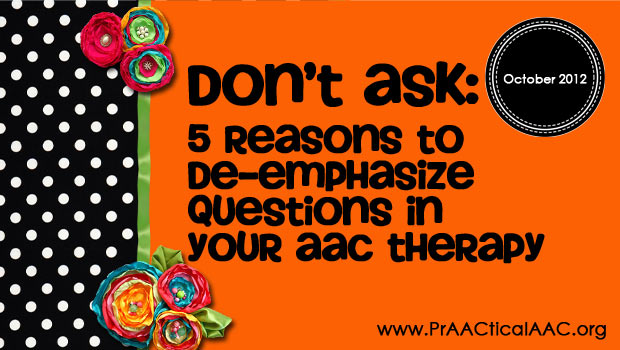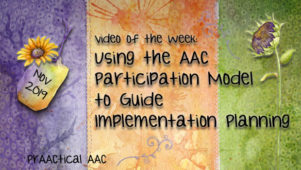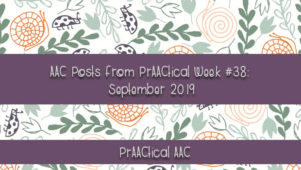Don’t Ask: 5 Reasons to De-Emphasize Questions in Your AAC Therapy

Questions are more like assessment than they are like instruction. Don’t believe us? Look at the questions these therapists posed and see if you didn’t feel like you were being quizzed.
- What’s your name? Where do you live? Do you know your address?
- How old are you? When’s your birthday? What school do you go to? What’s your teacher’s name?
- What’s that called? What do we do with that? Can you tell me more about it?
Just to be clear, we think data-based decision-making always plays an important role in good therapy. However, assessment is assessment. Assessment helps us figure out what to teach and how to teach it. But it should look and sound very different than instruction. So when the SLP tells us she is going to teach a new skill by asking a question, we start to tense up.
Here’s why we’re de-emphasizing questions in our AAC therapy.
1. It’s de-motivating. Okay, I’m not really sure that’s a word, but you know what we mean. Answering a bunch of questions is not much fun, and if the therapy isn’t engaging, we’re not maximizing the learning power.
2. Communication teaching should focus on conversation, not confrontation. Asking lots of questions is unnatural and puts communicators on the spot, and that’s not optimal for learning. Just ask anyone with apraxia or issues with language organization,
3. It reduces the length and complexity of the utterance. Leading comments (e.g., “You look hungry.” “I’d love to hear your ideas;” “I had a terrible weekend!”) are more likely to elicit a longer, richer response.

4. They promote passivity. Asking a lot of questions trains communicators to wait to be asked before they communicate. When therapy is characterized by asking and answering questions (even good ones!), we’re promoting learned helplessness.
5. Other people imitate us. Family members, teachers, and even peers tend to follow our lead on how best to interact with a person learning to communicate with AAC. So whatever we do gets magnified, making it even more important that we model language facilitation strategies that build communicative competence.
Questions have a legitimate role in AAC intervention, but should not be a prominent feature of instruction in most situations. What should we do instead? Glad you asked: Check out our earlier posts on strategies for helping language to develop in AAC learners.
Filed under: PrAACtical Thinking
Tagged With: implementation ideas, intervention, language facilitation
This post was written by Carole Zangari





3 Comments
Plus- how often do people actually WAIT for the answer? Asking too many questions without waiting for the answer sends a VERY strong message about both the question (i.e., I’m not sure what else to do!) and response (i.e., I really just asked it for my own benefit, I don’t expect you to be able to answer). It can enforce the belief that the child’s voice doesn’t matter or that they can tune out people who are “engaging” them.
Some great points, Emily! I was just talking about that ‘waiting period’ with someone this week and we agreed: It is very hard to wait 5, 10, 15, or 20 seconds for our clients to respond, but there is no substitute for that perfect pause. Thanks for stopping by and making that comment.
Great post and very very interesting. I think the stumbling block for teachers more than therapists is the attempt to justify the questioning as assessment for “WH” questions. Any ideas on how to explain the difference?